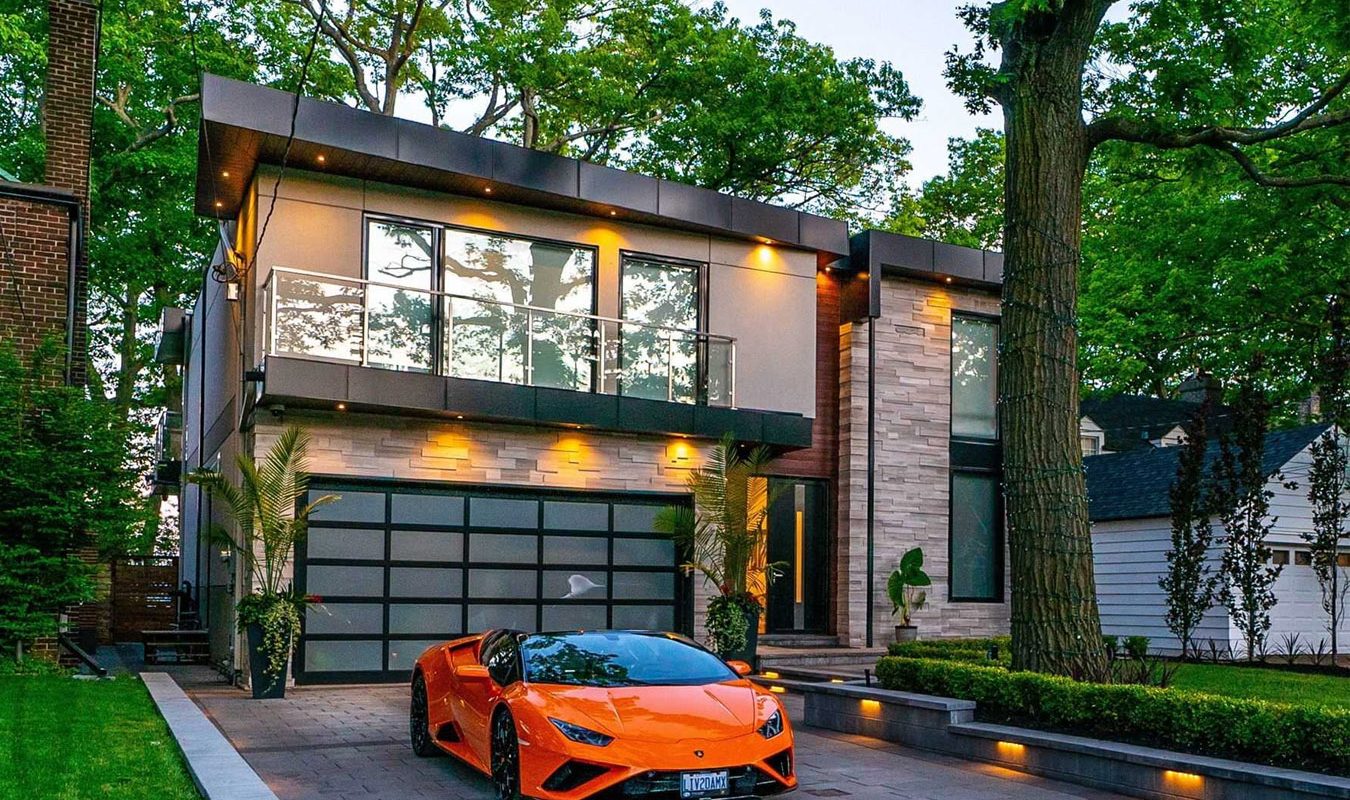Buying in the luxury real estate market is a unique and exciting venture that demands a refined approach. It is an opportunity to purchase a high-end property that reflects your tastes and lifestyle. Buyers in this segment are not only investing in a home; they are purchasing an experience, a status symbol, and a long-term asset that often appreciates in value. The luxury market is distinguished by properties that offer exceptional quality, prime locations, and world-class amenities. This market can include sprawling estates, penthouses in glamorous cities, waterfront properties, and historic mansions that have been renovated to modern standards.
Insider secrets in the luxury market reveal that success relies on careful planning, exclusive network contacts, and thorough market knowledge. Buyers must be well-versed in market trends and understand that negotiations in the luxury segment are nuanced and driven by personalized service. The process differs from purchasing in lower segments because it involves fewer, yet more discerning, buyers and sellers.
In addition, understanding the unique financing options available for high-end properties is critical. Loans for luxury properties may come with different requirements, and buyers must be prepared to show substantial assets and a strong credit profile. It is also essential to consider the lifestyle benefits and the long-term investment potential of these properties. Whether you seek a vacation retreat or a permanent residence that exudes elegance, the luxury market offers a sophisticated living experience.
The goal is to equip you with a refined strategy that ensures you make an informed purchase. In this article, we provide a detailed, connected narrative in clear, concise sentences. Each section delivers insider knowledge with essential tips and real-world examples, all designed to empower you in your pursuit of buying in the luxury market.
Financial Planning and Budgeting for Luxury Property Purchases

When entering the luxury real estate market, financial planning becomes paramount due to the high stakes and significant investment involved. Start by taking a comprehensive look at your finances. This includes assessing your current income, savings, and any other assets that contribute to your purchasing power. You must establish a realistic budget that covers the purchase price and additional costs specific to luxury properties, such as higher property taxes, premium insurance, and maintenance expenses.
Creating a detailed budget plan is essential in the luxury market. Use financial planning tools and calculators to determine how much you can comfortably afford to spend. It is vital to consider both your short-term liquidity and your long-term wealth-building goals. High-end properties may offer significant appreciation over time, but they also require a commitment to ongoing maintenance and occasional renovations.
Furthermore, understand that financing for luxury properties is often different from conventional loans. Many banks offer specialized loans for luxury property purchases, which may feature competitive rates if you meet the high credit and asset thresholds. You might need to provide extensive documentation of your income and assets, including recent tax returns, bank statements, and a detailed portfolio summary. These documents will support your loan application and help you secure favorable terms.
In summary, financial planning for luxury property purchases involves establishing a comprehensive budget that includes all associated costs. It requires a careful assessment of your financial health, consultation with experienced financial advisors, and thorough documentation to secure specialized financing. Every dollar should be accounted for, from the down payment to closing costs and beyond. This disciplined approach not only ensures that you are prepared for the initial purchase but also helps sustain long-term wealth and investment growth.
Location Selection and Market Research in the Luxury Segment
The location of a luxury property is a critical factor that affects both your lifestyle and the investment potential of the home. In the luxury market, location is everything because it directly influences property value and desirability. High-end buyers often seek properties in prestigious neighborhoods, near cultural landmarks, or in scenic, exclusive areas such as beachfronts, mountains, or vineyard estates. Conduct thorough market research to identify regions that consistently attract affluent buyers. Start by studying local market trends, comparing property values, and reviewing long-term appreciation rates.
Conduct on-the-ground research by visiting the area multiple times. Explore the community during different seasons to gain a holistic view. Look for signs of community investment such as well-maintained public spaces, modern amenities, and ongoing development projects. Engage with local real estate agents who specialize in luxury properties. They often have insider knowledge on exclusive listings and upcoming developments that are not available on public real estate websites. Additionally, analyze local demographics to ensure the area matches your desired lifestyle. Consider the noise levels, cultural offerings, and overall neighborhood ambiance. Use online tools, such as geographic information systems (GIS) and market analytics platforms, to compile data on property sales, median prices, and economic trends.
These resources can give you detailed insights that might not be visible through simple observation. Local news outlets and luxury property magazines also provide valuable information on trends and developments in the high-end market. Finally, consider future development plans in the area, as these can influence long-term property appreciation. A well-chosen location in the luxury market not only meets your current living needs but also promises strong investment growth over time. With detailed research and careful evaluation, you can choose a location that offers both personal enjoyment and robust financial returns.
Financing Options and Mortgage Considerations for Luxury Homes
Securing financing for a luxury home requires a tailored approach compared to a conventional property purchase. Lenders in the luxury segment often have specialized loan programs designed for high-net-worth individuals. The financing options available may include jumbo loans, portfolio loans, and sometimes even bespoke financing from private banks. When exploring these options, start by assessing your creditworthiness.
Ensure that your credit score is in excellent shape and that you have a verifiable net worth that supports your loan application. Many lenders expect a down payment of 20 percent or more, and in some cases, even higher percentages are requested. It is important to compare offers from multiple lenders. Ask for detailed Loan Estimates that outline interest rates, fees, and terms.
Additionally, consider if you want a fixed-rate or adjustable-rate mortgage. Fixed-rate mortgages offer stability, and many buyers in the luxury market prefer a predictable payment structure. An adjustable-rate mortgage might offer lower initial payments but comes with the risk of future increases. Some lenders offer hybrid products that combine elements of both fixed and variable rates. Evaluate these carefully based on your long-term plans and risk tolerance. It is also wise to explore refinancing options later, so select a loan that offers flexibility should your financial situation evolve.
Some lenders even require professional appraisal reports and collateral documentation. Engaging with a financial advisor who specializes in luxury real estate can be particularly useful here. They help you understand the implications of various financing options and recommend strategies to optimize your loan terms. Overall, the goal is to secure financing that not only aligns with your investment goals but also ensures manageable monthly payments and long-term financial security. By carefully analyzing and comparing multiple financing options, you can obtain favorable loan conditions that support your purchase in the luxury market.
Legal, Tax, and Insurance Considerations in the Luxury Market
When purchasing a luxury property, legal, tax, and insurance considerations are critical to protect your investment and avoid costly issues. Begin by consulting with a real estate attorney who has expertise in high-end transactions. Luxury property deals often involve complex contracts, and it is vital to review every detail carefully. Legal due diligence includes title searches and verifying that there are no liens or encumbrances on the property.
Tax implications in the luxury market can be significant. Mortgage interest and property taxes are usually deductible if you itemize deductions. However, the tax benefits can vary depending on whether the property is used as a second home or a rental investment. Consult a tax professional to understand how your purchase will affect your tax obligations and to plan for any potential liabilities. Luxury properties can also attract higher property taxes, so factor these into your ongoing expenses.
Insurance for a luxury home requires special attention. High-end properties have unique risks and may require policies that provide broader coverage than standard homeowners insurance. Look for insurance companies experienced in the luxury market, and compare policies to find one that offers comprehensive coverage at a competitive rate. Consider additional coverages for art, jewelry, or other valuable assets that you store within the home. Also, evaluate the benefits of multiple policies if you plan to rent the property part-time.
Ensure you discuss terms such as occupancy requirements, natural hazard coverage, and replacement cost options with your insurer. In summary, addressing legal, tax, and insurance aspects requires a multi-disciplinary approach. Engaging professionals in each area is essential for ensuring that your investment is secure and that you fully understand your rights and obligations. This proactive strategy helps prevent future disputes and safeguards your financial interests while preserving the value of your luxury property.
Lifestyle, Exclusivity, and Community Benefits in the Luxury Market
Living in the luxury real estate market offers distinct lifestyle advantages that go beyond basic homeownership. A luxury home is often a symbol of success and achievement. It provides unparalleled comfort, high-end amenities, and exclusive features that cater to discerning tastes. The design and construction quality are exceptional, featuring custom interiors, state-of-the-art appliances, and premium materials. Buyers in the luxury market frequently enjoy expansive living spaces, outdoor terraces with stunning views, private pools, and landscaped gardens that serve as private retreats. These properties are usually located in areas known for their prestige, such as upscale neighborhoods, gated communities, or prime waterfront locations.
Residents often have access to exclusive clubs, private dining facilities, and bespoke services that are not available in standard neighborhoods. Social events and networking opportunities provide you with the chance to connect with like-minded individuals who share similar interests and lifestyles. The lifestyle benefits extend to daily conveniences, as luxury properties are often situated near high-end shopping, gourmet restaurants, and cultural attractions. This proximity makes everyday living both enjoyable and efficient. Privacy and security are paramount in luxury developments. Many properties feature advanced security systems, gated entry, and dedicated personnel who provide peace of mind. Furthermore, living in a prestigious community can elevate your social status and expand your professional network.
These community benefits enhance your overall satisfaction and contribute to a balanced, refined lifestyle. For many buyers, the appeal of luxury real estate lies in the combination of superior quality, exclusivity, and a vibrant, high-end community atmosphere. This environment not only improves your day-to-day living but also supports long-term wealth building through stable property values and strong market demand.
Property Management and Maintenance for Luxury Homes
Managing a luxury property requires specialized care that often exceeds the needs of standard properties. High-end homes come with unique challenges, and proper property management ensures that your investment remains in pristine condition. Luxury properties often feature extensive grounds, high-end finishes, and state-of-the-art amenities that need regular attention. Many buyers in the luxury market opt to hire professional property management services. These services handle routine maintenance, landscaping, security, and any repairs that are necessary to preserve the quality and value of your home. A professional team can monitor the property on your behalf, which is particularly important if you do not reside there year-round.
High-quality property management also ensures that the property’s luxury standards are maintained consistently. This includes regular cleaning, upkeep of common areas, and timely responses to any issues that may arise. In addition, technology plays an important role in modern property management. Smart home devices, automated systems, and remote monitoring allow you to keep track of your property’s condition from anywhere in the world. These tools can alert you to potential problems, such as leaks, system malfunctions, or security breaches, so you can address them promptly.
It is also essential to set up a regular maintenance schedule that accounts for seasonal changes and special requirements inherent to luxury properties. Professional property managers can provide a comprehensive plan that covers preventive maintenance and emergency repairs. By ensuring that every aspect of your property is well cared for, you protect the value of your investment and enhance the overall living experience. High-end property management guarantees that your luxury home remains a source of pride and enjoyment for years to come. It also offers peace of mind that your property is being maintained to the highest standards, both when you are there and when you are away.
The Role of Technology in the Luxury Real Estate Experience

Technology is a crucial component in optimizing the luxury real estate experience. Modern advancements have made it easier than ever to buy, finance, and manage high-end properties. Virtual tours and high-resolution property videos allow you to explore luxury homes remotely. These digital tools provide an immersive experience that can save you time and help you narrow down your choices before visiting in person. Smart home technology has transformed luxury residences. Home automation systems enable you to control lighting, temperature, security, and entertainment systems with ease.
They provide a high level of protection and peace of mind for property owners. Digital platforms also streamline communication between you and your property management team. Online portals allow you to monitor maintenance requests, track expenses, and view financial reports in real time. These platforms integrate seamlessly with mobile devices, giving you instant access to critical information regardless of your location. Moreover, technology plays a pivotal role during the buying process. Data analytics and market analysis tools help you compare properties quickly and make informed decisions. Real estate platforms aggregate data on property values, neighborhood trends, and historical pricing.
Additionally, financial technology enhances the financing process. Lenders offer online applications, digital document uploads, and e-signature options that reduce the need for in-person meetings. These digital tools expedite the mortgage process and increase transparency. Overall, technology not only enhances the convenience of buying and managing luxury real estate but also plays a significant role in securing competitive deals and maintaining top-notch property management. Embracing these technological advances is vital for making the most of your investment in the luxury market.
Negotiation Techniques and Insider Strategies for Luxury Purchases
Negotiating in the luxury real estate market demands sophisticated strategies that go beyond traditional negotiation tactics. Insider secrets reveal that buyers in this segment must be well-prepared and know when to leverage market intelligence. Start by gathering comprehensive market data. Understand recent sales trends, typical price ranges, and property values in the area. This research enables you to identify whether the asking price is reasonable or if there is room for negotiation. Luxury properties often have unique features that can serve as negotiation points.
These professionals have extensive connections and insider knowledge that provide a competitive edge during negotiations. They can help you navigate complex market dynamics and identify motivated sellers. Flexibility and timing are critical factors as well. Timing your offer when the market is slow or when a seller is eager can give you significant leverage. Insider strategies also suggest that making a strong initial offer can sometimes be beneficial. A well-crafted offer that is backed by solid financial credentials often signals to the seller that you are a serious buyer. Don’t hesitate to negotiate closing terms, contingencies, and extras such as furnishings or upgrades. Finally, always be prepared to walk away if the deal does not meet your financial objectives.
Patience and persistence are key to arriving at a favorable agreement. By employing these negotiation techniques, you can secure a luxury property at a fair price while protecting your investment. Insider strategies emphasize the importance of due diligence, relationship-building, and being well-informed about the market. These elements, combined with skilled negotiation, are instrumental in successfully purchasing a high-end property. The ability to negotiate effectively can lead to substantial savings and improved terms that benefit you both in the short and long term.
Long-Term Value and Investment Potential in the Luxury Market
Investing in luxury real estate presents long-term value and strong investment potential that go far beyond typical home buying. Luxury properties tend to maintain their value over time due to their high-quality construction, prime locations, and access to exclusive amenities. Buyers in the luxury market are often looking for both a prestigious lifestyle asset and a sound investment. Properties in well-established luxury neighborhoods tend to have robust appreciation rates, particularly in areas that attract affluent buyers and tourists.
In addition to rental income, luxury properties often qualify for favorable loan terms, tax advantages, and lower depreciation risk. Long-term value is enhanced by the meticulous planning and ongoing maintenance inherent in luxury developments. These factors contribute to both the aesthetic appeal and the financial stability of the property. Investors should consider the overall economic environment, local market trends, and future development plans in the region. All of these elements impact the resale value and investment return of your luxury property. Additionally, diversification is an important principle in investment. Owning a luxury property adds an asset class that often behaves differently from stocks or bonds. This diversification can hedge against broader market volatility and provide a stable long-term return.
Luxury properties are also in high demand among buyers seeking exclusivity and prestige, which keeps market interest strong even during economic downturns. In summary, luxury real estate is a robust investment that offers both lifestyle benefits and long-term financial security. A careful analysis of market conditions, property management, and strategic location selection are all critical to maximizing the value of your investment over time.
Conclusion
Insider secrets for buying in the luxury market reveal that success relies on a combination of careful planning, market research, and expert negotiation. Begin by thoroughly understanding your financial position and establishing a realistic budget that covers every expense, from the purchase price to ongoing maintenance and taxes. Next, select a location that not only meets your lifestyle needs but also promises strong long-term appreciation. Use a variety of online tools, reliable market data, and professional advice to assess market conditions and property values.
Legal, tax, and insurance aspects are equally important; consult with experts in these fields to safeguard your investment. The lifestyle benefits of living in a luxury property include access to exclusive amenities, enhanced security, and a unique sense of community. In addition, the negotiation phase is critical. Develop a strategy that leverages market data and builds relationships with experienced agents. Use negotiation tactics that focus on both price and favorable terms. Technology plays a pivotal role in every step from virtual property tours to streamlined property management systems. Finally, consider the long-term value and investment potential of your purchase.
Luxury properties often offer not only a superior lifestyle but also a stable investment that appreciates over time and can generate rental income if desired. Take proactive steps by preparing your finances, gathering documentation, and engaging with professionals who have a deep understanding of the luxury market. Start your journey today by mapping out your priorities, visiting potential areas, and consulting with experts. Every decision you make along the way brings you closer to owning a truly exceptional property that aligns with both your dreams and your financial goals. Embrace the process and use these insider secrets to make a smart, informed purchase that will serve you well for years to come.



